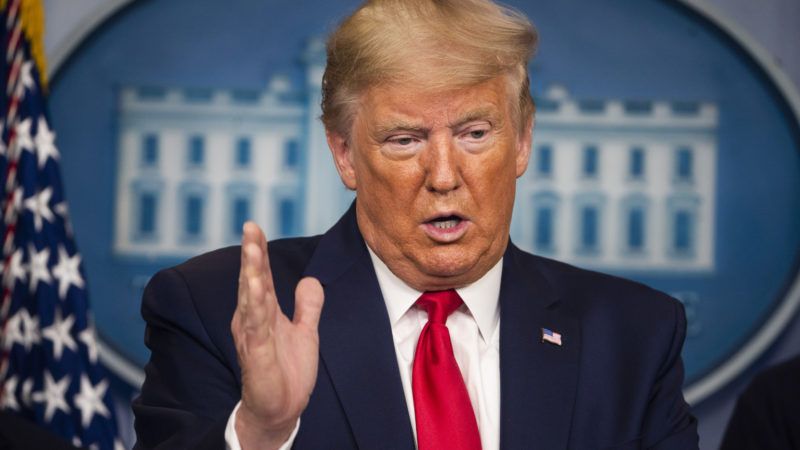No, It's Not Dangerous To Air Trump's Coronavirus Briefings
What's dangerous is not trusting people with the truth.

For the past week, President Donald Trump has held daily press briefings about COVID-19 and the government's response to the pandemic. After Trump's remarks, members of the media ask questions of the president, Vice President Mike Pence, Dr. Anthony Fauci, Dr. Deborah Birx, and other officials dealing with the coronavirus.
Because Trump sometimes uses the opportunity to engage in two of his favorite things—boasting and attacking the press—some journalists now believe it is irresponsible, even dangerous, for the media to carry live broadcasts of the briefings.
"The press—if it defines its purpose as getting truthful, useful, non-harmful information to the public, as opposed to merely juicing its own ratings and profits—must recognize what is happening and adjust accordingly," writes Margaret Sullivan, The Washington Post's media columnist, in an item headlined "The media must stop live-broadcasting Trump's dangerous, destructive coronavirus briefings."
"Radical change is necessary," Sullivan continued. "The cable networks and other news organizations that are taking the president's briefings as live feeds should stop doing so." Sullivan's Post colleague Erik Wemple appears to agree.
It's true that Trump has spread misinformation about COVID-19—he was overconfident about chloroquine and azithromycin as potential cures, for instance. And his behavior toward some critics has been appalling. He lashed out at NBC's Peter Alexander because the reporter dared to ask whether the president's stated optimism was founded in fact. It was a perfectly reasonable question, and the president's response was childish.
These are good arguments for media members to scrutinize the briefings and to pen articles explaining what officials are getting wrong. They are not good arguments for cutting off the public's ability to directly hear from the president and his team. If Trump is providing "dangerous and destructive" information, as Sullivan claims, then the public has the right to know about it.
Many in the media simply do not like that Trump uses the briefings as a form of campaigning. Many, quite reasonably, also do not like being attacked for refusing to swallow Trump's false assurances that everything is going to be fine. But the solution is not to coddle the public via a form of aggressive information gatekeeping. Let the people see what the president is saying, and let the journalists, pundits, and experts correct him when appropriate.


Show Comments (143)